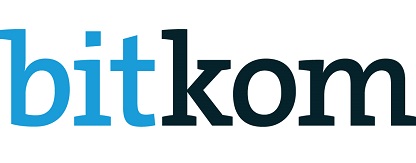Bitkom Survey on the German Building Sector
Climate protection and energy efficiency by digital building technologies
In 2020, the building sector in Germany was responsible for 118 million tons of CO2 emissions. However, according to the Climate Change Act of 2021, these emissions must fall to 67 million metric tons by 2030.
The most efficient way to save energy is not to use it
This can be achieved by combining various measures. In the discussion so far, the main focus has been on the building envelop (insulation, etc.) and the decarbonization of energy sources (gas and oil). However, an essential element for a climate-neutral building sector is also the economical use of energy, because it is most efficient not to generate energy that can be wasted in the first place (Negawatt).
The Bitkom Building Survey analyzes how digital technologies (e.g. smart building technology and building automation) contribute to reducing energy consumption in buildings. The study also examines their contribution to achieving climate protection targets in the years 2030 and 2045.
To this end, scenarios for the use of digital technologies in residential and non-residential buildings were calculated and it was shown which technologies can be used to achieve which targets.
Up to 14.7 million t of CO2 emissions can be saved
The Bitkom building survey comes to the conclusion that an ambitious expansion of building automation can save up to 14.7 million tons of CO2 emissions in the building sector in the short to medium term (2030). This corresponds to almost 30 percent of the reduction target for the building sector formulated in the Climate Change Act.
Further major potential could also be tapped from the use of Building Information Modeling (BIM). These systems can be used to evaluate energy and raw material flows along the entire life cycle of buildings.
The determination of CO2 reduction potentials in the building sector is complex and depends on numerous factors.
The survey therefore also addresses the following questions:
- How can digitization in the building sector contribute to achieving climate targets?
- Which technologies are particularly suitable for reducing energy and resource consumption in the building sector?
- How can the savings potential be reliably calculated and which scenarios are likely?
- How can the ecological footprint of the technologies themselves be reduced?
The complete survey was published by Bitkom on the occasion of the World Climate Conference 2021 (COP 26) and and can be downloaded here for free.


